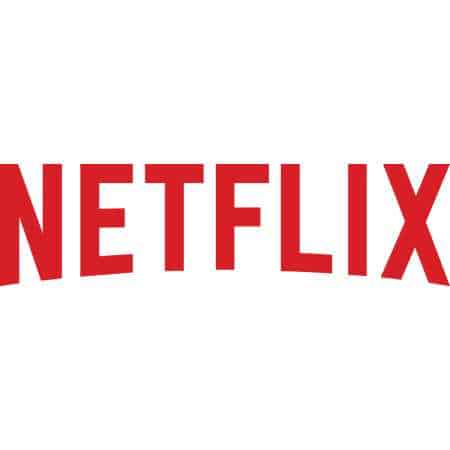Imagine your film twinkling under Netflix’s spotlight—what’s its price tag? You’ve honed your craft, and now you’re poised to sell, but cracking Netflix’s vault is no small feat.
This article strips away the mystery, offering you a strategic look into how Netflix prices movies. You’ll learn about script payment structures, investment ranges, and revenue sharing models.
Master the art of negotiation and understand just how much your cinematic brainchild might be worth to the streaming giant.
Key Takeaways
- Netflix invests between $100 and $250 million for a single movie, which can increase based on the specific film and streaming rights.
- Netflix’s content production spending is projected to reach $19 billion USD by 2025.
- The payment amount for movies depends on factors like film budget and popularity, and it can be a fixed licensing fee or a percentage of the film’s revenue.
- Netflix may also offer additional compensation for exclusive rights or extended licensing periods.
Selling Your Script
If you’re looking to cash in on your creative writing, connecting with a licensed literary agent or an industry professional with ties to Netflix is your first step toward selling your script to the streaming giant.
Master the pitching process by honing a compelling presentation of your script’s unique value.
Leverage industry connections; these gatekeepers are pivotal in navigating the labyrinth of content acquisition.
Consider entering screenwriting competitions as a strategy to showcase your work and attract attention.
Be prepared with negotiation strategies to maximize your upfront payment, balancing your immediate financial gain with the potential for future opportunities.
Screenwriter Earnings
Understanding your potential earnings as a screenwriter is key when you’re aiming to sell a script to Netflix. Here’s what you need to keep in mind:
- Screenwriter Compensation: Typically, new writers might secure around $100,000, while established names can command upwards of millions.
- Selling Process: Engage with industry professionals who’ve proven Netflix ties, and consider entering script competitions as a way to gain visibility.
- Payment Negotiation: Arm yourself with knowledge and representation to negotiate payment effectively; this may include flat fees or bonuses based on the script’s success.
Script Payment Structures
Before diving into the specifics of script payment structures, it’s important to note that when you’re negotiating a deal with Netflix, you’ll typically encounter a variety of compensation components.
Navigating these negotiations requires a strategic approach to secure writer compensation that aligns with your project’s value and budget considerations.
The payment terms you agree upon should reflect a fair payment for your creative output, taking into account the complexity and marketability of your script.
Ensure that the deal encompasses all stages of script development, from initial drafts to potential rewrites.
In these negotiations, aim for transparency and advocate for terms that recognize your contribution to the project’s potential success.
Your mastery in negotiating deals will be pivotal in achieving a favorable outcome.
Netflix’s Investment Ranges
Netflix’s investment in a single movie typically ranges from $100 to $250 million, demonstrating the company’s commitment to sourcing high-caliber content that meets your diverse viewing preferences. These figures aren’t static; they flex depending on:
- Potential earnings: Netflix calculates projected returns, aiming to ensure that their investments are financially justified.
- Payment negotiations: The finalized amount may deviate from initial offers, with deals shaped through strategic bargaining.
- Content acquisition strategy: Whether obtaining exclusive rights or employing revenue sharing models, Netflix’s investment ranges are tailored to optimize content value and audience reach.
You’re witnessing a meticulous financial dance, where every step is designed to not only bring fresh, compelling stories to your screen but also to maintain a sustainable, profitable entertainment ecosystem.
Licensing Agreements Explained
In licensing agreements, you’ll find that Netflix negotiates terms that dictate the payment and rights for streaming a movie, which often include a fixed fee or a share of profits. These deals are central to content acquisition strategies. Payment negotiations hinge on various factors, including film budgets and projected revenue distribution. Here’s a breakdown of key elements in a standard licensing agreement:
| Term | Description | Impact |
|---|---|---|
| Fixed Fee | Upfront payment for content rights | Ensures immediate return on investment |
| Profit Share | Percentage of revenues earned | Aligns interests for long-term success |
| Exclusivity | Sole distribution rights granted | Increases potential audience reach |
Understanding these components empowers you to grasp the strategic planning behind Netflix’s content library expansion.
Revenue Sharing Models
You’ll find that one of the several payment structures Netflix may offer filmmakers is a revenue sharing model, where content creators receive a portion of the profits generated from their works on the platform. This approach aligns the financial success of Netflix with that of the creators, offering several key advantages:
- Negotiating Terms: Creators can negotiate deals that reflect the potential success of their content, incentivizing quality and marketability.
- Content Creator Benefits: A share in the revenue offers an ongoing income, rather than a single upfront payment, rewarding creators for the global reach and popularity of their content.
- Alternative Distribution: Revenue sharing presents a viable alternative to traditional distribution channels, potentially maximizing exposure and earnings without the constraints of conventional models.
Frequently Asked Questions
How Does Netflix Determine the Value of a Film for Acquisition Purposes, Specifically When It’s an Independent or Lesser-Known Title?
Netflix evaluates a film’s acquisition value by analyzing content value, market demand, audience metrics, and the appeal of exclusive rights, ensuring their strategy aligns with viewers’ preferences and business goals.
Can Filmmakers Negotiate for Backend Points or Profit Participation When Selling a Movie to Netflix, and if So, How Common Is This Practice?
You can negotiate for profit sharing and backend points with Netflix, employing savvy negotiation tactics and understanding contract structures, including royalty agreements and exclusivity clauses, to secure your financial interest.
What Role Do Film Festivals and Awards Play in Influencing the Amount Netflix Is Willing to Pay for a Movie?
Film prestige, festival hype, award buzz, and critical acclaim influence market dynamics, raising a movie’s value. You’ll leverage these factors strategically to negotiate better terms with Netflix. Mastery requires understanding these elements’ impact.
Are There Any Differences in How Netflix Pays for Foreign Language Films Compared to English-Language Movies?
You’re navigating complex factors like foreign premiums, cultural value, content quotas, and localization costs, which can influence Netflix’s payment for foreign films compared to English-language movies, including subtitle licensing intricacies.
How Does the Performance of a Film on Netflix’s Platform Post-Release Affect Any Additional Payments or Bonuses to the Filmmakers?
Netflix may offer you bonuses based on viewership metrics, retention impact, and success metrics, which can influence renewal negotiations for your film, ensuring additional payments align with its post-release performance.





